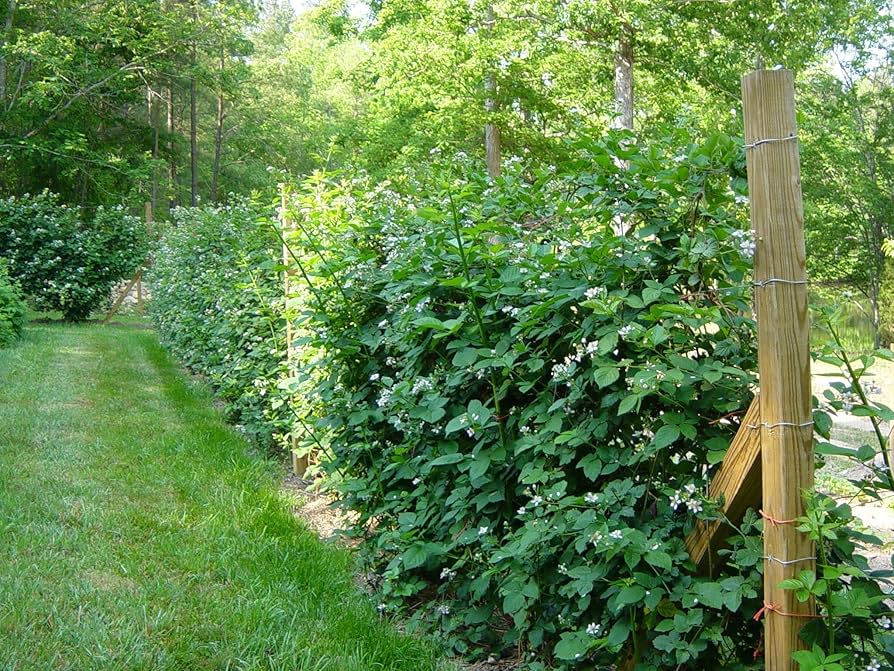Blackberry
Blackberry
Couldn't load pickup availability
Blackberry (Rubus allegheniensis)
Robust, vigorous, and bursting with flavor, the native eastern blackberry (Rubus allegheniensis) is a valuable addition to any edible or rewilded landscape. This upright, arching bramble produces fragrant white flowers in spring, followed by clusters of deep black, juicy berries in midsummer, perfect for fresh eating, jam, pie, or wine.
More than just delicious, blackberry is also a workhorse plant: it forms dense thickets that provide nesting cover and food for birds, mammals, and pollinators. Its canes are fast-growing and self-sufficient, thriving in sunny meadows, woodland edges, and disturbed ground. This species tolerates poor soils and drought once established, and spreads by root suckers and tip-layering canes.
Whether you’re planting a wild hedge, building a food forest, or encouraging native pollinators and songbirds, Rubus allegheniensis brings generous yields and habitat value year after year.
Details:
-
Height: 3–6 feet (canes)
-
Spread: Spreads vigorously by roots and arching stems
-
Light: Full sun to part shade
-
Soil: Well-drained; tolerant of poor, rocky soils
-
Bloom time: Late spring
-
Fruit: Midsummer; edible, sweet-tart blackberries
-
Wildlife value: Excellent forage for birds, insects, and mammals
-
Zones: 4–8
-
Native to: Eastern and central North America
Share








